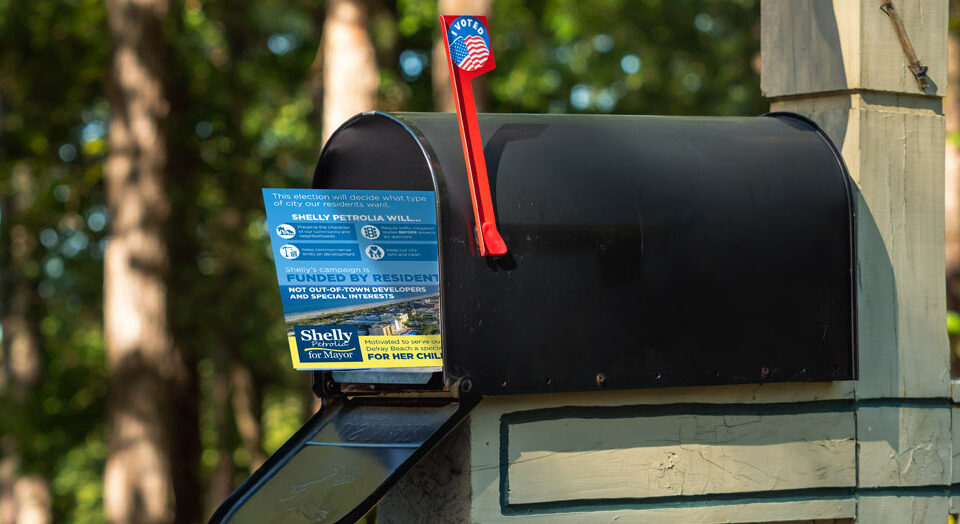
5 Important Benefits of Blogging for Your Business
August 18, 2022
7 Email Marketing Lessons Big Brands Can Teach Small Businesses
September 19, 202212 Mistakes To Avoid With Your Political Campaign Marketing

Political campaigns are long, drawn-out affairs, and even experienced candidates are sure to make a few mistakes along the way. With that being said, too many unforced errors can doom a campaign well before the first votes are cast. Limiting mistakes, especially those relating to marketing and voter outreach, can keep your campaign in the right gear until you’ve successfully crossed the finish line.
Every mistake avoided represents another boost to your chances. As you execute your campaign, here are twelve errors you should be especially focused on avoiding.
1. Using Substandard Photos
The last thing you want is for your campaign to look cheesy, and nothing says “amateur” like a grainy or awkward photo. Dipping into your coffers for professional photos might be painful, but it’s the only way to ensure your campaign maintains the glossy, competent image you need. Many people are visual learners, and they’ll rely on photos to form an opinion of your candidacy. That’s why it’s always best to invest in the images you know will impress the electorate.
2. Underestimating the Importance of Direct Mail
It’s easy for candidates in the twenty-first century to dismiss the importance of direct mail. You’re hardly alone if you assume that digital advertising is all that matters in today’s world. Unfortunately for the hapless candidates who maintain this view, it’s wildly out of step with reality. Countless voters continue to read the literature left in their mailboxes, and you’ll be making yourself needlessly invisible to them if you forgo direct mail marketing altogether.
3. Spending Without Discipline
Money is always hard to come by on the campaign trail, and you need to stay disciplined in how you allocate your funds. You’d be amazed how many candidates splash the cash on needless trinkets. Branded mugs and coasters can make a real impact on a campaign, but only if they fit into a larger, cohesive strategy. Before making a purchase, always consider whether it’s truly in the best interest of your campaign.
4. Not Trusting the Experts on the Team
The best candidates, and the best leaders, surround themselves with genuine experts. Building an all-star team, however, is only the first step. The most important part, and something many candidates struggle with, is actually listening to what those experts have to say. It’s normal for you to have your own ideas about your campaign, but you’re paying all those consultants, marketers, and graphic designers for a reason. When they express an opinion in their area of expertise, you’d be well advised to listen.
5. Changing the Messaging
As a candidate, it’s easy to hear yourself repeating the same words every day and assume they’ve become stale and boring. What you can’t forget is that you’re the only one who’s had to hear them a million times. The audience is different on every occasion, and the consistency of the messaging is what gives your campaign forward momentum. Resist the urge to change your catchphrases or slogans, and make sure your marketing materials convey a simple, consistent message.
6. Avoiding Negative Messaging at All Costs
While running a positive campaign is the right strategy for many candidates, you don’t want to become completely inflexible on the matter. Highlighting the distinctions between yourself and your opponent is one of the most important things you can do as a candidate. You’re not running in a vacuum, and people want to know that you’re taking your opponent seriously. While dirtying the waters with classless ads and materials could be counterproductive, you should at least make a pointed effort to highlight why you’re a better choice than your foe.
7. Assuming You’ve Secured “The Base”
It’s easy to assume that a certain portion of the electorate is already firmly in your corner. These are the folks who reliably support the policies you’re promoting and seem destined to mark your name on the ballot. Keep in mind, however, that destiny is a fickle friend in the world of politics. If you ignore people for too long, they’re liable to drift toward another candidate or forget about the election altogether. Even if it seems like a potential waste of resources, be sure to focus some materials on members of “the base.” Not only will this secure their votes, but it will also encourage them to advocate for you in the public square.
8. Overtargeting
Your campaign should have a specific set of goals about the voters you’ll target with your marketing materials. Once you’ve established those goals, you need to keep your marketing within the established parameters. If you try to reach too many people, you’ll overextend yourself and wipe out your budget. While it can be hard to leave potential voters unsolicited, you need to be realistic about the capacity of your campaign.
9. Undertargeting
Targeting too few voters is just as serious a problem as targeting too many. It’s easy for a candidate to get into such a groove with a certain type of campaigning that they forget about other possibilities. Try to figure out just how large a sector of the electorate you can realistically market toward. Then, make sure you’re allocating your resources as thoughtfully as possible.
10. Using the First Person in Marketing Materials
While it’s always nice for a candidate to address voters directly, you want to be careful not to overuse the first person in marketing materials. After all, your main goal is for voters to remember and respond to your name. That’s what they’ll see on the ballot, not some disembodied “I” who says all the right things. Using your name will also ensure that your online materials show up when people look for you on Google, something that can’t be undervalued in the digital age.
11. Ignoring Social Media
Social media might as well have been designed for political campaigns. It’s a perfect tool for simultaneously connecting with countless voters in a way that seems intimate and genuine. If you fail to stay on top of your social accounts, you’re wasting a golden opportunity. Your opponents are almost certainly using social networks to their advantage, and you’ll be dooming yourself to likely failure if you don’t give your own accounts just as much attention.
12. Overconfidence
Elections are hard work, even when you seem to be the obvious favorite. When surprises occur on election day, it’s often because a favored candidate rested on their laurels and tried to coast their way into office. No matter how optimistic you are about your chances, you’ll need to earn each and every vote you receive. Remember how diligent a successful campaigner must be, and always assume that extra work will be required.






